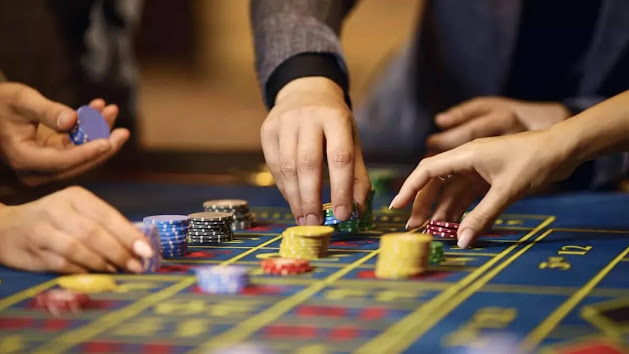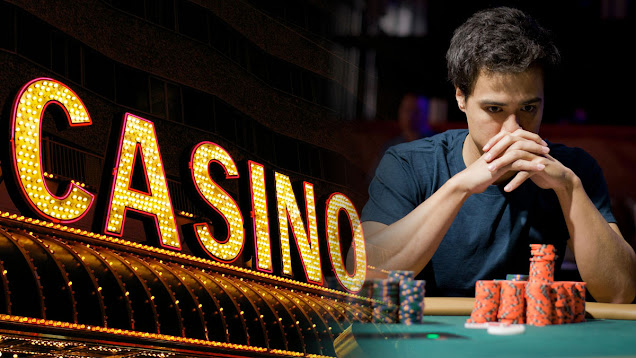5 Ways You Can Cheat at Roulette and Why You Shouldn’t
However long speculators have bet cash on tosses of the dice and expertise, the impulse to cheat has lingered. 메리트카지노
Reluctant to allow destiny to choose, club con artists utilize inventive and deceitful stunts to acquire an out of line edge over the house.
Among the soonest strategies utilized by poker cheats, the gunslinging poker rounds of the Old West time saw cheats use secret weapons. Nowadays, con artists who plague poker can be found in both physical card rooms and online destinations, intriguing or unloading chips to collaborate on clueless rivals.
Cheating in current club transcendently torments the ability based games like poker and blackjack, yet you'd be astounded by how predominant the wrongdoing has become in roulette and different shots in the dark. You wouldn't think a straightforward wheel-turning undertaking like roulette would be liable to cheating since players don't actually have any impact on the interactivity.
Regardless, cheats can be found anyplace genuine cash is being bet, and the roulette table is no special case. Indeed, even with the always present "eye in the sky" keeping a close eye on them, and extremely observant croupiers (vendors), pit managers, and other staff individuals prepared to recognize misbehavior, roulette miscreants can't help themselves.
The charm of bringing in pain free income without causing hazard unquestionably bodes well, yet attempting to swindle the club while playing roulette is a waste of time. Try not to believe me however, simply request the long setup from indicted roulette crooks who attempted the five different ways to cheat at roulette recorded underneath.
1 – Past Posting or Late Betting to Increase Wagers on Known Winners
Each roulette player knows the feeling great…
At the point when you nail the number impeccably and watch the croupier stack the 35 to 1 payout, wishing you would've wagered $10 rather than $1, the experience can be clashing without a doubt. Overcoming long chances for a major payout is consistently cause for festivity, yet when you just bet a couple of bucks, it very well may be not difficult to kick yourself for not putting more out there.
Some roulette miscreants aren't happy with their insignificant payouts, so they resort to a strategy famously alluded to as "past posting." Also known as "late wagering," the idea of past posting is very essential on a superficial level. You add chips to your bet once you know it's a victor.
At the point when the croupier watches the wheel to discover where the ball landed, it will take them a brief moment to check the spaces, discover the ball, and turn their eyes back to the table prior to calling the number. In that brief instant, past posting specialists use skillful deception stunts to covertly add critical aggregates to their triumphant bet.
Hands Placing Chips on a Roulette Table
Suppose you sprinkled different wagers somewhere in the range of $5 and $40 on a few single-number spaces, utilizing blends of both the red $5 and green $25 chips. You have the number 17 covered with one $5 chip, yet when you see the ball settle into the 17 space, you immediately dart your hand out and cap the $5 bet with a $25 chip. The croupier never sees your deceit, and very much like that, you've turned a $175 payout (35 to 1) on $5 into an incredible $1,050.
Why You Shouldn't Try Past Posting
While conceivably worthwhile when undetected, past posting is innately perilous dependent on the moving parts in play.
An expert croupier is prepared to check and retain the wagers in play when they wave for conclusive bets, so they may see your little chips abruptly changing into large ones. While you're watching the croupier, a close by pit manager outside of your fringe vision may see you do the switch. What's more, up above, high-goal cameras are recording each move you make.
Put it all together, and past posting simply does not merit the danger implied, a reality Charbel Tannous and Constandi Lubbat can validate. In 2011, while playing roulette at L'Auberge du Lac Casino Resort in Louisiana, the pair were discovered in the act past posting for huge cash.
After specialists utilized observation film to affirm that more than $175,000 was taken by means of the roulette plan, Tannous and Lubbat were accused of lawful offense cheating and cheating more than $1,500 and criminal connivance.
Tannous was in the long run indicted and condemned to 37 months in government jail for getting sorted out the roulette racket. This is a brutal discipline US Attorney Stephanie Finley clarified will be the standard for gambling club swindles:
"We are extremely satisfied with the court's choice to give this respondent a huge jail term. The gambling club and the residents were casualties for this situation. A piece of the benefits from the club goes to the State of Louisiana and the Calcasieu Parish School Board. We will keep on collaborating with our nearby, state, and government law requirement accomplices to arraign wrongdoings of this nature and look for the greatest measure of jail time accessible."
2 – Partnering With a Croupier to Produce Fake Winners
In the event that you read the recently connected announcing, you realize Tannous and Lubbat didn't work alone.
By scheming with two croupiers working at the gambling club, these cheats ensured their previous posting shenanigans could never be accounted for.
That approach surely bodes well on a goal level, as well. By multiplying down on the trick, plotting to guarantee their cheating is permitted by individuals running the table, schemers don't pass on anything to risk. Having an "inside man" in the group just makes cheating at roulette that a lot simpler, as a bad croupier can permit their accomplice to blow up winning wagers or pull back chips on failures.
Why You Shouldn't Partner With a Dealer
In 2016, a club pit manager at the Horseshoe Casino in Council Bluffs, Iowa, chosen to denounce any kind of authority. He enrolled a croupier to carry out the filthy thing, and a third accomplice to put on a show of fortunate player. Past posting gave the greater part of the group's $20,000 in not well gotten gains, however like practically all roulette cheats before them, these three were in the long run gotten on camera and captured.
David Dales, a specialist with the Iowa Division of Criminal Investigation (IDCI), gave an assertion clarifying how the trick was set up:
"There was a vendor that was doing some dynamic conning instrument on the roulette table at Horseshoe Casino. What's more, there was a supporter he was reliably cheating for. The claims are they were past presenting – including chips the triumphant numbers – doing different exercises that gave them illicit rewards at a table game."
The guilty parties were accused of four lawful offenses, including continuous criminal direct, first-degree robbery, intrigue, and cheating at betting. They confronted critical prison time and robust fines.
3 – "Shading up" Small Chips for Higher Denominations off the Table Before Cashing Out
A particularly shrewd way roulette players can swindle the game includes the old hustle.
To make the "shading up" conspire work, two players working couple start by finding a spot at various tables. In roulette, cash is transformed into uniquely planned chips that are just acceptable at the table. To keep away from disarray between various players wagering, everybody gets an alternate shading chip in the section fitting their personal preference.
A tone up group moves from one table to another, one purchasing in for the base $1 chips, and the other going greater with a $25 or $100 section. At the point when the two of them get a similar shading chips, they're generally at an alternate table and just six or seven tones are in play so this will unavoidably happen, the snare is sprung.
The low stakes player pockets a modest bunch of chips secretly, then, at that point, takes off to take a fast washroom break. With no observation cameras to stress over, they trust that their accomplice will hit the head too, then, at that point, they convey a small bunch of chips when no one's near.
Hand Holding the Roulette Ball - Roulette Table Full With Casino Chips
Flush with new chips in similar shading as those at the huge stakes table, the subsequent player continues to play a twist or two with negligible activity prior to mentioning a shading up and cash out.
At the point when miscreants transform 10 of the $1 chips into a comparable measure of $25 chips, they've quickly "acquired" $240 in benefit with practically no trace of hazard. What's more, if a $1 to $100 swapping scale is in play, the shading up trick delivers an enormous $990 overall revenue.
Why You Shouldn't Color up Chips
Somewhere in the range of 2012 and 2013, a profoundly coordinated group of shading up miscreants situated in New York visited the nation focusing on little business and ancestral club. Their run reached a conclusion in Ohio, after the group struck at four club and took large number of dollars, just for 13 individuals to wind up in the slammer regardless.
Karen Huey, overseer of authorization for the Ohio Casino Control Commission (OCCC), told neighborhood news sources that the Buckeye State was in good company:
"This is an extremely coordinated gathering of around 70 individuals. They venture to every part of the country. They've been recognized in 18 states running this trick."
The roulette duping group ended up confronting 29 crime counts and the chance of extensive jail sentences. As indicated by Lucas County Prosecutor's Office Special Units Division Chief John Weglian, club hoodlums won't ever get tolerance. 온라인카지노먹튀검증
"One of the guideline motivations behind these gambling clubs is to give income to the State of Ohio so the laws that the lawmaking body has passed cover gambling club infringement will be upheld rigorously by the Attorney General's office and this office. We will authorize the laws of the state."
4 – Using Hidden Lasers to Measure Ball Speed Before Betting Concludes
These last two are entirely ridiculous, to the point that they scarcely merit notice, yet in view of their logical advancements alone, they took care of business.
Harking back to the 1970s, a physicist at the Santa Fe Institute in New Mexico named Norman Packard proposed that laser bars could be utilized to gauge pivotal roulette factors.




Comments
Post a Comment